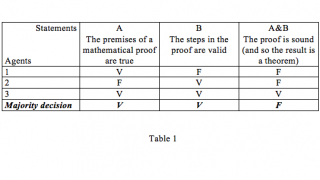
On scientific co-authorship (1): Why do scientists publish together?
The allocation of merit to individual scientists is one of the crucial aspects of how scientific systems work. Publication of ‘papers’ in important journals, and, still most significantly, citation of those papers in the works of colleagues, is perhaps (with all its shortcomings ) the most determinant mechanism for recognising the value and capacity of […]








